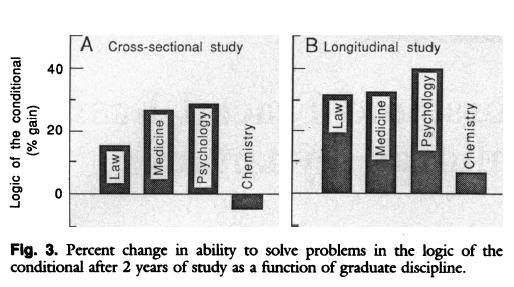
Twentieth-century psychologists have been pessimistic about teaching reasoning, prevailing opinion suggesting that people may possess only domain-specific rules, rather than abstract rules; this would mean that training a rule in one domain would not produce generalization to other
domains. Altematively, it was thought that people might possess abstract rules (such as logical ones) but that these are induced developmentally through self-discovery methods and cannot be trained. Research suggests a much more optimistic view: even briefformal training in inferential
rules may enhance their use for reasoning about everyday life events. Previous theorists may have been mistaken about trainability, in part because they misidentified the kind of rules that people use naturally.
Teaching Reasoning. RICHARD E. NISBETT, GEOFFREY T. FONG, DARRIN R. LEHMAN, PATRICIA W. CHENG.
Science Magazine, 30 October 1987.
Another confirmation that model-based approach to teaching invention skills can be extremely useful when abstract rules are illustrated with examples from different domains. Just teaching-by-example or abstract reasoning logic may not be enough to get the knowledge transfer effect.
No comments:
Post a Comment